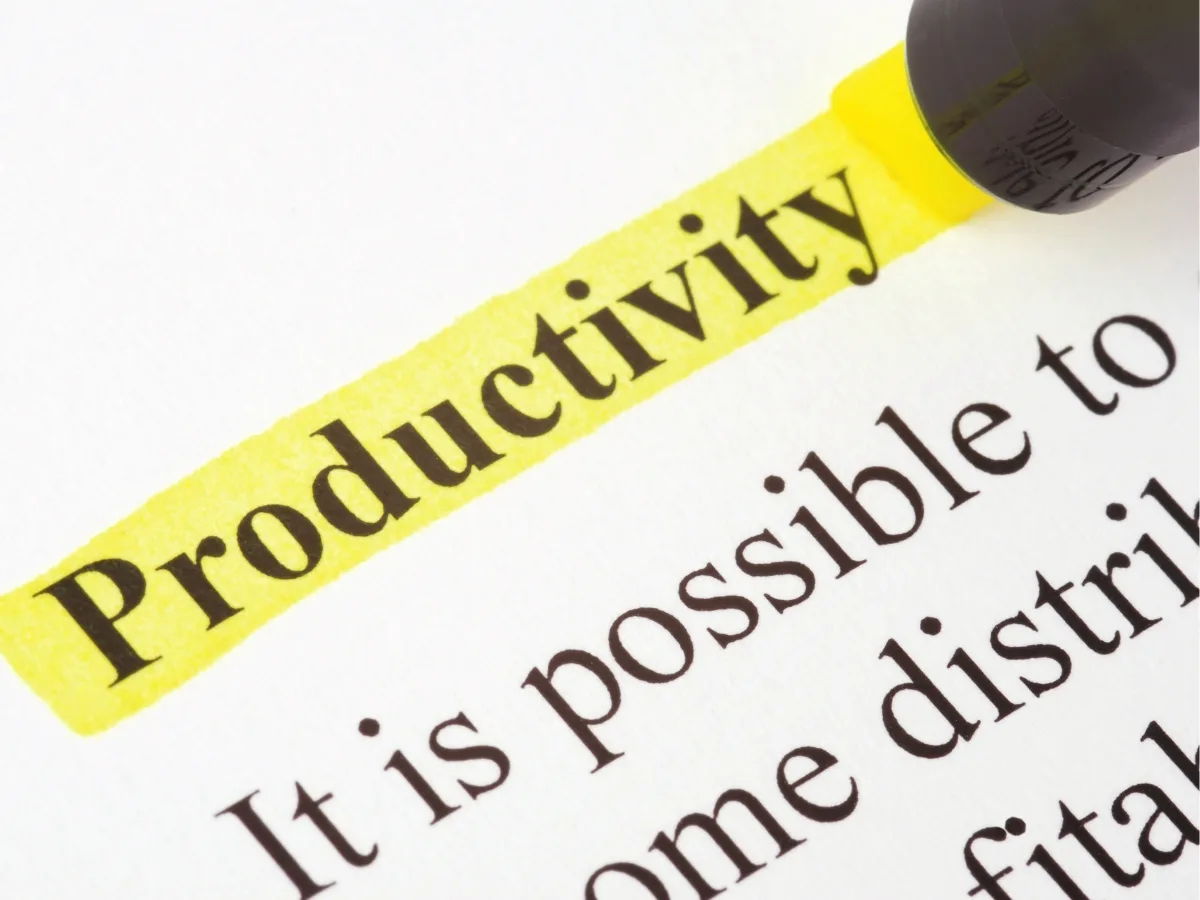Morning Routine – It’s Beneficial to Have One!
Having a morning routine is crucial for starting your day off on the right foot. It sets the tone for the rest of the day and can greatly impact your productivity, mood, and overall well-being. In this blog post, we will explore the various benefits of establishing a morning routine and provide some tips on how to create one that works for you.

Morning Routine Benefits
One of the main benefits of having a morning routine is that it helps to create a sense of structure and stability in your life. By having a set routine to follow each morning, you are able to establish a sense of order and predictability. This can help to reduce stress and anxiety, as you know what to expect each day and can prepare yourself mentally and physically.
Another benefit of a morning routine is that it allows you to prioritize your time and focus on what is most important to you. By setting aside dedicated time in the morning for activities that align with your goals and values, you are able to start your day with intention and purpose. This can help to increase your motivation and drive, as you are actively working towards the things that matter most to you.
In addition, a morning routine can also have a positive impact on your physical and mental well-being. By incorporating activities such as exercise, meditation, or journaling into your morning routine, you are able to take care of your body and mind. Regular exercise in the morning can help to boost your energy levels and improve your overall fitness. Meditation or journaling can help to promote mindfulness and self-reflection, allowing you to start your day with a clear and focused mind.
Furthermore, a morning routine can help to improve your productivity throughout the day. By starting your day with a clear plan and a set of tasks to accomplish, you are able to hit the ground running and make the most of your time. This can help to increase your efficiency and effectiveness, as you are able to prioritize your tasks and eliminate distractions.
Creating a morning routine that works for you is a personal process. It is important to consider your individual needs, preferences, and goals when designing your routine. Some people may prefer to start their day with exercise, while others may prioritize meditation or reading. Experiment with different activities and find what works best for you.
1. Increased Productivity

One of the key benefits of having a morning routine is increased productivity. When you have a set routine in the morning, you are better able to prioritize your tasks and allocate your time effectively. By starting your day with a clear plan, you are more likely to stay focused and accomplish your goals.
Additionally, a morning routine can help you establish a sense of structure and discipline. When you consistently follow a routine, you develop good habits and avoid wasting time on unproductive activities. This can lead to greater efficiency and ultimately, higher productivity throughout the day.
Having a morning routine allows you to take control of your day right from the start. Instead of waking up and feeling overwhelmed by the demands of the day, a routine gives you a sense of direction and purpose. You know exactly what needs to be done and when, which eliminates decision fatigue and allows you to dive into your tasks with clarity and focus.
Moreover, a morning routine provides an opportunity for self-reflection and mental preparation. By incorporating activities such as meditation, journaling, or reading, you can set a positive tone for the day ahead. This quiet time allows you to clear your mind, reduce stress, and cultivate a positive mindset, all of which contribute to increased productivity.
In addition, a morning routine can help you harness the power of momentum. When you start your day with small, manageable tasks, you build momentum that carries you through the rest of the day. This sense of accomplishment fuels motivation and encourages you to tackle more challenging tasks as the day progresses.
Furthermore, a morning routine can help you optimize your physical and mental well-being. By incorporating exercise into your routine, you can boost your energy levels and enhance your cognitive function. Physical activity stimulates the release of endorphins, which improve mood and concentration. Additionally, engaging in activities that promote mindfulness and self-care, such as stretching, yoga, or a healthy breakfast, can set a positive tone for the day and improve overall well-being.
2. Improved Mental Health
Another important aspect of having a morning routine is its positive impact on mental health. Taking time for yourself in the morning allows you to engage in activities that promote self-care and well-being. This can include meditation, journaling, reading, or any other activity that brings you joy and relaxation.
Engaging in these activities early in the day helps to reduce stress and anxiety, allowing you to approach the day with a calm and focused mindset. It also provides an opportunity for self-reflection and introspection, which can be beneficial for overall mental well-being.
When you start your day with activities that nourish your mind and soul, you set a positive tone for the rest of the day. By taking the time to meditate, for example, you can cultivate a sense of inner peace and clarity that carries over into your daily activities. This can help you navigate through challenges and stressful situations with greater ease and resilience.
Journaling is another powerful practice that can contribute to improved mental health. By putting your thoughts and feelings onto paper, you gain a deeper understanding of yourself and your emotions. This process can help you identify patterns, uncover hidden beliefs, and release any pent-up emotions. It serves as a form of therapeutic self-expression and can provide a sense of relief and release.
Reading is also a valuable activity for mental health. By immersing yourself in a good book, you can escape from the stresses of daily life and enter a world of imagination and knowledge. Reading stimulates the mind, enhances cognitive abilities, and can even improve empathy and emotional intelligence.
Overall, incorporating activities that promote mental well-being into your morning routine can have profound effects on your overall mental health. It allows you to prioritize self-care and set a positive tone for the day ahead. By starting your day with a calm and focused mindset, you are better equipped to handle the challenges that may arise and approach life with greater clarity and resilience.
3. Increased Energy and Motivation
A well-established morning routine can also help boost your energy levels and motivation for the day ahead. By incorporating activities such as exercise or stretching into your morning routine, you can get your blood flowing and increase your alertness. This physical activity not only wakes up your body but also stimulates the release of endorphins, which are natural mood boosters.
Additionally, starting your day with activities that bring you joy or a sense of accomplishment can help to set a positive tone for the rest of the day. When you begin your day on a high note, you are more likely to approach your tasks with enthusiasm and motivation. This could be as simple as spending a few minutes practicing gratitude or journaling about your goals and intentions for the day.
Moreover, a well-designed morning routine can help you prioritize your tasks and create a sense of purpose. By setting specific goals for the day and breaking them down into manageable steps, you can feel a sense of accomplishment as you complete each task. This sense of progress and achievement can fuel your motivation and drive you to tackle more challenging tasks throughout the day.
Furthermore, a morning routine that includes mindfulness or meditation can help to calm your mind and reduce stress levels. Taking a few moments to focus on your breath or engage in a guided meditation can help you cultivate a sense of inner peace and clarity. This mental clarity can enhance your focus and productivity throughout the day, as you approach your tasks with a calm and centered mindset.
Tips for Creating a Morning Routine
Now that we understand the importance of having a morning routine, let’s explore some tips for creating one that works for you:

1. Define your goals: Before you start creating your morning routine, it’s essential to define what you want to achieve. Are you looking to increase productivity, improve your physical fitness, or enhance your mental well-being? Knowing your goals will help you structure your routine accordingly.
2. Wake up early: One of the key elements of a successful morning routine is waking up early. By giving yourself extra time in the morning, you can avoid rushing and start your day on a calm and positive note. Gradually adjust your sleep schedule to wake up earlier, ensuring you get enough rest.
3. Start with a positive mindset: Incorporate activities that promote a positive mindset into your morning routine. This could include practicing gratitude, meditation, or reading uplifting literature. Starting your day with positivity can set the tone for the rest of the day.
4. Hydrate and nourish your body: Make sure to hydrate your body by drinking a glass of water as soon as you wake up. This will help kickstart your metabolism and provide your body with the hydration it needs after a night of sleep. Additionally, fuel your body with a nutritious breakfast to provide the energy you need to tackle the day ahead. Eggs are a wonderful way to start the day. Make the Perfect 6 Minute Eggs or Enjoy our Asparagus and Eggs on Sourdough Toast to get your day started off right!
5. Incorporate exercise: Physical activity is an excellent way to boost your energy levels and improve your overall well-being. Whether it’s a quick workout, a yoga session, or a morning walk, find an exercise that suits your preferences and include it in your morning routine.
6. Prioritize tasks: Take a few minutes to prioritize your tasks for the day. Identify the most important tasks that need to be completed and allocate time for them in your morning routine. This will help you stay focused and ensure that you make progress towards your goals.
7. Limit distractions: Minimize distractions during your morning routine to maximize productivity. Put your phone on silent or in another room to avoid getting caught up in social media or emails. Instead, use this time to focus on activities that contribute to your personal growth and well-being.
8. Be flexible: While having a routine is important, it’s also essential to be flexible and adapt to unexpected changes. Life can throw curveballs, and it’s important to have the ability to adjust your routine when necessary. Embrace flexibility and find alternative ways to incorporate your desired activities if your schedule gets disrupted.
By following these tips, you can create a morning routine that sets you up for success and helps you make the most of your day. Remember, consistency is key, so stick to your routine and make adjustments as needed to ensure it remains effective.
1. Start Small
When establishing a morning routine, it’s important to start small and gradually build upon it. Trying to incorporate too many activities at once can be overwhelming and unsustainable. Begin by identifying one or two activities that you would like to include in your routine and gradually add more over time.
For example, you might start by simply waking up 15 minutes earlier than usual. This extra time can be used for a quiet meditation session or a quick stretching routine. By starting with just one activity, you give yourself the opportunity to fully commit to it and make it a habit.
Once you have successfully incorporated the first activity into your routine, you can then add another one. This could be something like journaling, reading a few pages of a book, or even going for a short walk. The key is to choose activities that align with your goals and values, and that bring you joy and fulfillment.
As you continue to add more activities to your morning routine, it’s important to be mindful of your time and energy. Make sure that you have enough time to complete each activity without feeling rushed or stressed. If you find that your routine is becoming too crowded, consider adjusting the duration of each activity or removing one that is not as important to you.
Remember, the purpose of a morning routine is to set a positive tone for the rest of your day and to prioritize self-care. It’s not about checking off a long list of tasks or trying to fit in everything you want to accomplish in a single morning. By starting small and gradually building upon your routine, you create a sustainable and enjoyable practice that will benefit you in the long run.
When it comes to designing an effective morning routine, it’s crucial to prioritize activities that align with your personal values and goals. Take some time to reflect on what truly matters to you and what activities contribute to your overall well-being. Is it important for you to start your day with physical exercise to boost your energy levels and maintain a healthy lifestyle? If so, make sure to allocate enough time for a workout session in your morning routine.
Additionally, consider incorporating activities that nurture your mental and emotional well-being. This could include practices such as meditation, journaling, or reading a few pages of an inspiring book. These activities can help you cultivate a positive mindset, enhance your focus, and set a positive tone for the rest of your day.
Another important aspect to consider when prioritizing activities in your morning routine is to be realistic about the time you have available. While it may be tempting to cram your routine with numerous activities, it’s essential to allow yourself enough time to fully engage in each one without feeling rushed or overwhelmed. Remember, the goal is to create a routine that is sustainable and enjoyable, not one that adds unnecessary stress to your mornings.
Furthermore, consider the order in which you prioritize your activities. For example, if you find that physical exercise is most effective for you when done on an empty stomach, you may want to prioritize it as the first activity in your morning routine. On the other hand, if you prefer to ease into your day with a calming activity like meditation, you might choose to prioritize that first.
3. Be Flexible
While having a routine is important, it’s also essential to be flexible. Life can be unpredictable, and there may be days when your routine needs to be adjusted. Allow yourself the flexibility to adapt your routine as needed, while still maintaining a sense of structure and consistency.
Being flexible doesn’t mean abandoning your routine altogether; rather, it means being open to making necessary changes when circumstances arise. For example, if you usually exercise in the morning but find yourself with a busy schedule one day, you can choose to switch your workout to the afternoon or evening. This way, you can still prioritize your health and fitness goals without feeling overwhelmed or guilty for deviating from your usual routine.
Flexibility also allows you to seize unexpected opportunities that may come your way. Sometimes, life presents us with exciting chances or last-minute invitations that we don’t want to miss out on. By being flexible, you can rearrange your routine to accommodate these new experiences without feeling restricted or constrained.
Moreover, being flexible helps you navigate through challenging times. There may be periods in your life when unexpected events or crises occur, requiring you to shift your focus and priorities. During these times, it’s crucial to adapt your routine to meet the demands of the situation. By doing so, you can maintain a sense of control and stability amidst chaos or uncertainty.
However, it’s important to strike a balance between flexibility and consistency. While being flexible allows for spontaneity and adaptability, too much flexibility can lead to a lack of structure and discipline. It’s essential to establish a core routine that forms the foundation of your daily life while leaving room for adjustments when necessary.
Remember, being flexible doesn’t mean abandoning your goals or values; it simply means being open to different approaches and willing to make changes when needed. By embracing flexibility, you can navigate through life’s twists and turns with grace and resilience, ensuring that you stay on track while also being open to new possibilities.
4. Experiment and Adjust
Creating a morning routine is a personal process, and what works for one person may not work for another. Don’t be afraid to experiment with different activities and schedules to find what works best for you. Pay attention to how each activity makes you feel and make adjustments accordingly.
When experimenting with your morning routine, it’s important to keep an open mind and be willing to try new things. Start by making a list of activities that you think might be beneficial to include in your routine. This could be anything from meditation to exercise to reading. Then, try out each activity for a few days or weeks and see how it impacts your mornings.
For example, if you decide to incorporate meditation into your routine, try different types of meditation to see which one resonates with you the most. You might find that guided meditation helps you feel more focused and centered, while others might prefer silent meditation or mindfulness exercises. By experimenting with different techniques, you can find the one that works best for you.
In addition to trying out different activities, it’s also important to pay attention to the timing of your routine. Some people find that starting their day with exercise gives them a burst of energy and sets a positive tone for the rest of the day. Others might prefer to ease into their mornings with a slower-paced activity like journaling or stretching.
As you experiment with different activities and schedules, don’t be afraid to make adjustments along the way. Your morning routine should be a reflection of your individual needs and preferences, so it’s important to listen to your body and mind. If you find that a certain activity is not bringing you the desired results or is causing unnecessary stress, don’t hesitate to remove it from your routine and replace it with something else.
Remember, creating a morning routine is not about following a strict set of rules or trying to fit into a mold. It’s about finding what works best for you and setting yourself up for a successful and fulfilling day ahead. So, embrace the process of experimentation and adjustment, and don’t be afraid to make your morning routine truly your own.
Are you on NewsBreak? If so, follow Thyme of Season for up-to-date articles and recipes. Are you a fellow writer and want to reach a wider audience? Join NewsBreak and start sharing your work.






